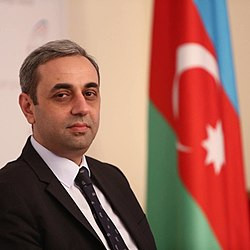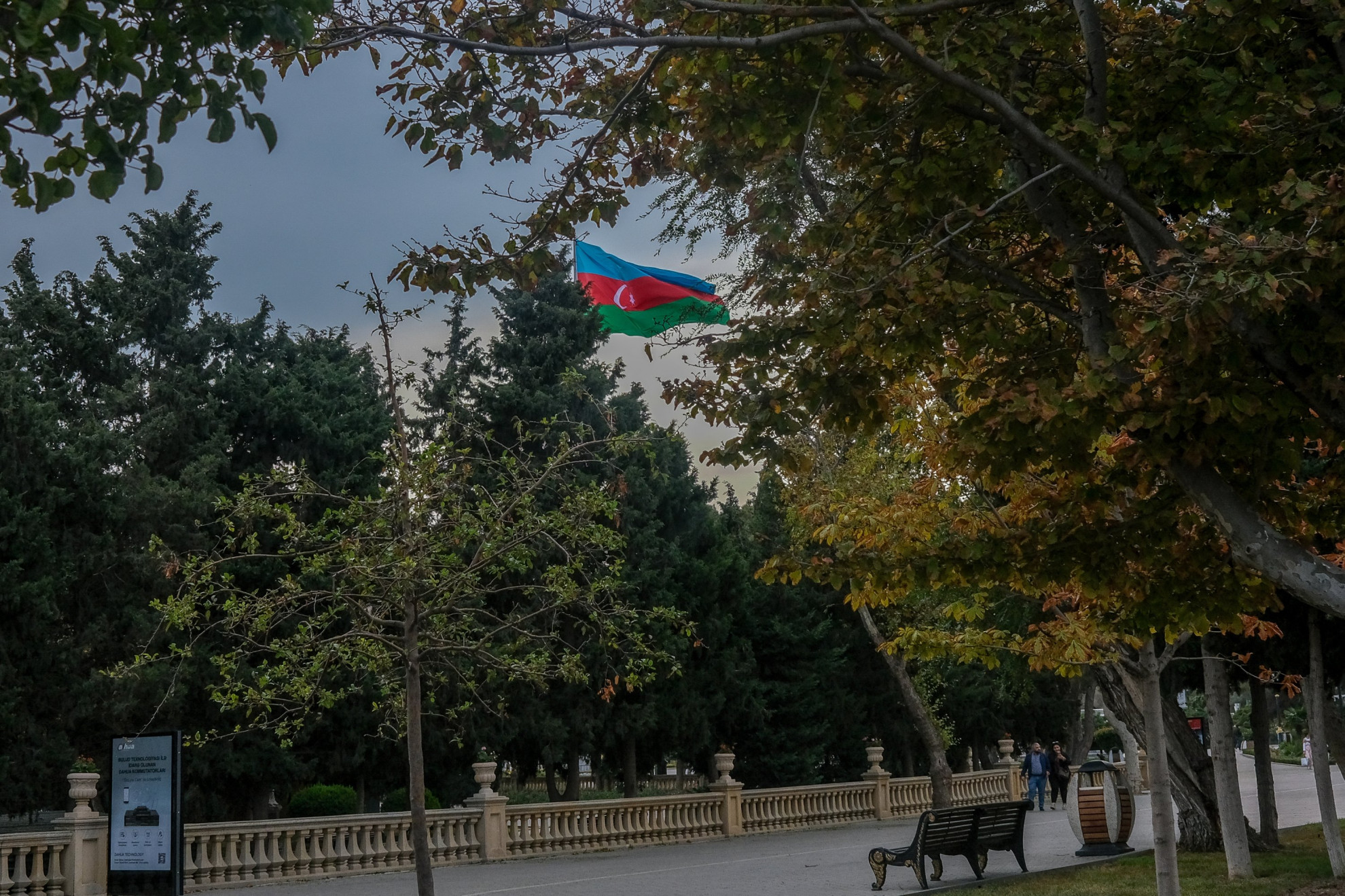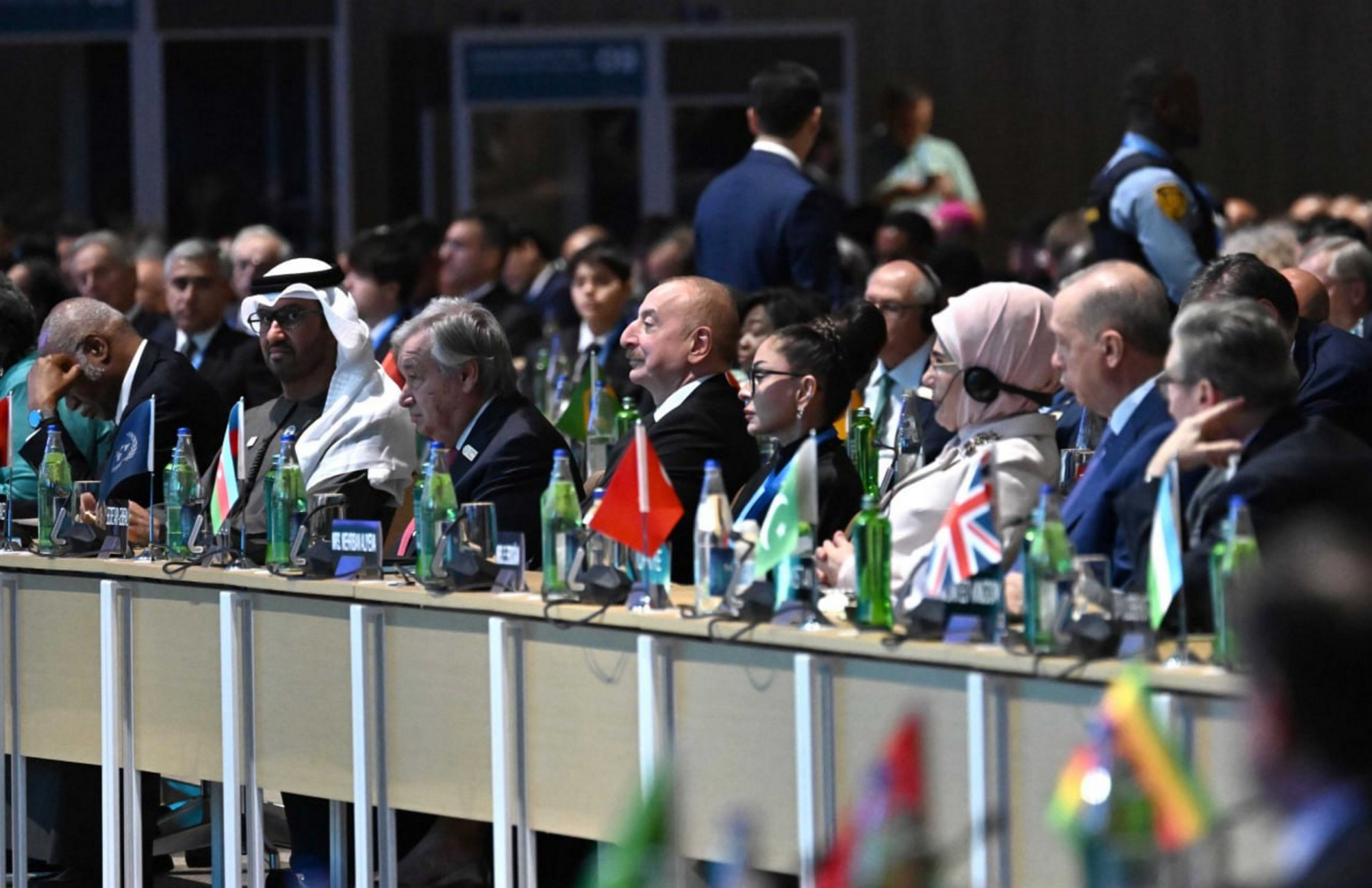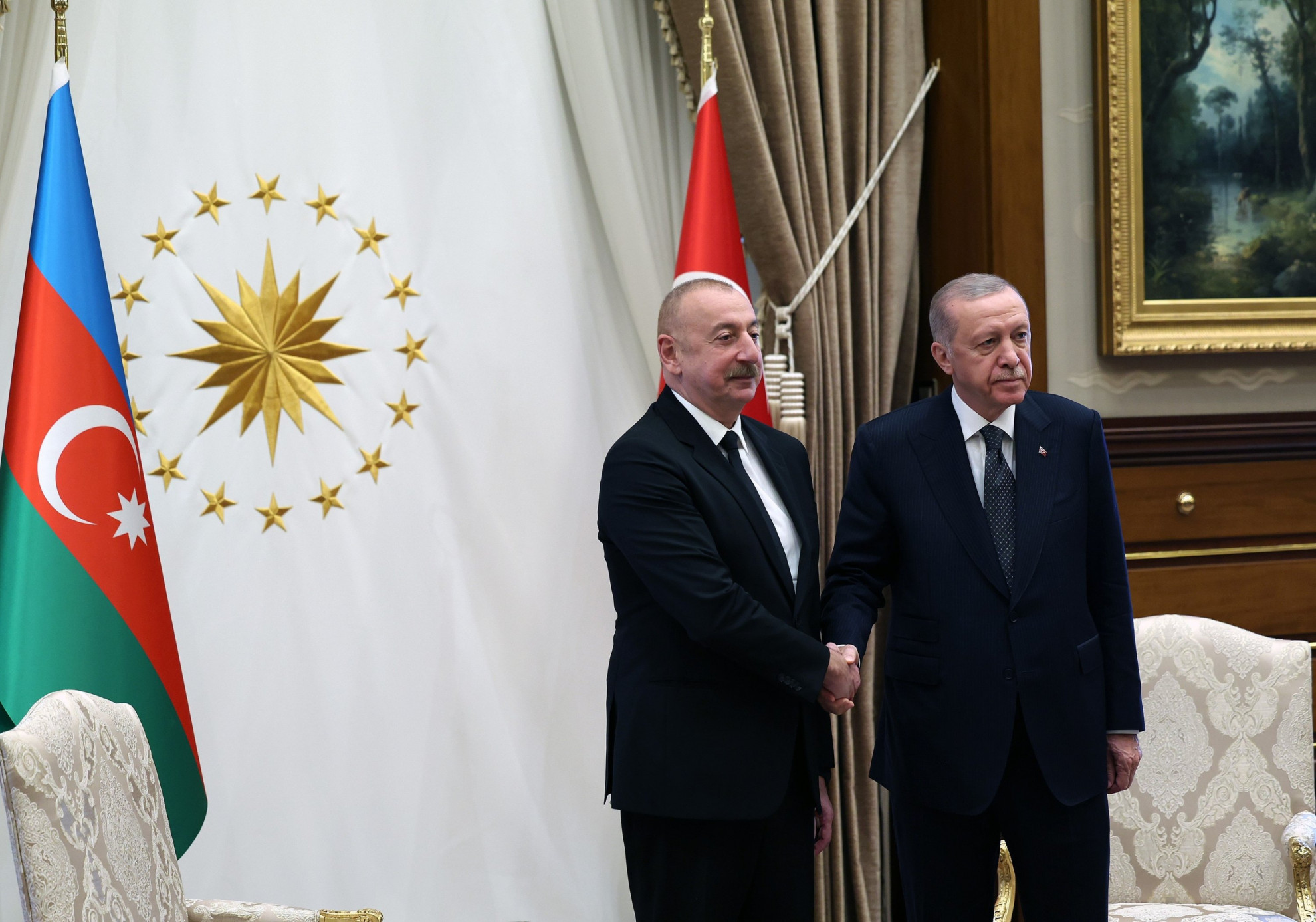Azerbaijani President Ilham Aliyev attended the sixth consultative meeting of the Central Asian leaders held in Astana, the capital of Kazakhstan, on Aug. 9, 2024, for the second time as an honorary guest. The consultative meetings of the Central Asian leaders began in 2017 upon the proposal of Uzbek President Shavkat Mirziyoyev and were held in Kazakhstan, Uzbekistan, Turkmenistan, Kyrgyzstan and Tajikistan.
Taking into account the visit to Uzbekistan on Aug. 22-23, President Ilham Aliyev visited Central Asian countries 17 times between 2022-2024, and Central Asian leaders visited Azerbaijan 15 times. With their participation in the COP29 summit meeting to be held in Baku on Nov. 11-21, the number of visits by Central Asian leaders to Azerbaijan will increase to 16.
The purpose of these visits is to create a common regional space in the face of opportunities and threats stemming from global and regional changes that have increased in recent years. Indeed, Aliyev defined Azerbaijan and Central Asian countries as a common historical, cultural and geographical region with increasing strategic value at the last Central Asian leaders' consultation meeting. For this reason, especially in the last two years, after the Karabakh victory and during the period of difficulties caused by the Russian-Ukrainian war, Azerbaijan has signed important agreements that increased strategic cooperation with Central Asian countries and led to the establishment of alliance relations.
For example, on Aug. 24, 2022, the Declaration on Strengthening Strategic Relations and Deepening Alliance Cooperation between Azerbaijan and Kazakhstan was signed; on April 20, 2022, the Declaration of Strategic Partnership between Azerbaijan and Kyrgyzstan; on May 23, 2024, the Declaration of Strategic Partnership between Azerbaijan and Tajikistan; and on Aug. 23, 2024, the Treaty on Alliance between Azerbaijan and Uzbekistan. On Aug. 8, 2017, before the Karabakh Victory, the Declaration on Strategic Partnership was signed with Turkmenistan.
In addition, the Supreme State Council with Kazakhstan, Kyrgyzstan and Uzbekistan, a joint investment fund of $500 million with Uzbekistan, and a Development Fund with a capital of $25 million with Kyrgyzstan were established. It is planned to establish a joint capital fund of $300 million with Kazakhstan.
Flow of welfare and development
Azerbaijan did not only sign agreements but also hosted international meetings that served to integrate the two geographical areas. The U.N. Special Programme for the Economies of Central Asia (SPECA) Economic Forum was held for the first time at the leadership level in Baku on Nov. 20-24, 2023. The United Nations Special Programme for the Economies of Central Asia (SPECA) was established on March 26, 1998, by the Tashkent Declaration. SPECA provides a regional collaboration platform for the implementation of Sustainable Development Goals (SDGs) that can be achieved better through regional cooperation.
The aim of the event, organized in Baku under the title of "Transforming the SPECA region into a global hub," was to discuss the digital transformation of data and document exchange in the SPECA region, the transport and green energy connection and the increasing importance of the Middle Corridor. The prime ministers of Georgia and Hungary, and the secretary general of the Gulf Cooperation Council attended the forum as guests of honor at the summit upon the invitation of Aliyev. At the end of the summit, a nine-article declaration was issued by the participating countries, and according to the declaration: "Digitization and green transformation of transit routes, as well as simplification of trade and transport procedures and energy integration, including green energy within the framework of the East-West Trans-Caspian Middle Corridor, as an immediate priority area of cooperation, and for this purpose on the Digitization of Multimodal Information and Documents on the Trans-Caspian international transport route, it was decided to decide on the adoption of the Road Map."
Furthermore, to meet the increasing demand for freight transport on the East-West route, the Baku-Tbilisi-Kars railway was modernized by Azerbaijan, increasing its freight transport capacity from 1 million tons to 5 million tons. In parallel, the capacity of the Port of Baku was increased from 15 million tons to 25 million tons.
Azerbaijan has the largest merchant fleet in the Caspian Sea, consisting of more than 50 vessels. According to Aliyev, after the completion of new investment projects, in the shipyards, taking into account the increasing demand for shippers from Central Asian countries, the number of tankers and dry cargo ships produced will increase from six to 10-15 vessels per year. To attract larger volumes of transit cargo, it is necessary to optimize tariffs and simplify and harmonize regulatory and customs procedures. One of the important criteria for ensuring transparency of transit transportation and equal conditions for participants in the transportation process is the digitalization of the East-West transport corridor.
Mutual energy cooperation began to develop. First, due to sanctions imposed on Russian natural gas and oil pipelines, Central Asian countries began to prefer Azerbaijan for access to Western markets. In fact, Kazakhstan had been using Azerbaijan as a transit country to export its oil since the early 2000s. The annexation of Crimea in 2014 and the subsequent problems in exports through Russia caused Kazakhstan to use more Azerbaijani pipelines and railways.
On the other hand, an agreement was signed between Azerbaijan and Turkmenistan for the Kepez/Serdar natural gas fields, which had been problematic for many years, and the name of the field was changed to Dostluk. In March 2024, an agreement was signed between Türkiye and Turkmenistan for the import of Turkmen gas. Then in May 2024, an agreement was signed between Türkiye and Azerbaijan to import Turkmenistan natural gas via Azerbaijan.
Similarly, cooperation opportunities in the field of natural gas are being explored between Uzbekistan and Azerbaijan. Finally, within the framework of Aliyev's visit to Tashkent on Aug. 22, a cooperation agreement in the field of natural gas was signed between the two countries' energy companies, SOCAR and Uzbekneftegaz. Although this agreement is not a commercial agreement, the level of political relations shows that cooperation in this field will deepen even more.
Cooperation is also being developed between Azerbaijan and Central Asia in the field of renewable energy. In November 2023, an agreement was signed between the energy ministers of Azerbaijan, Uzbekistan and Kazakhstan on the unification of electricity systems. Thus, Uzbekistan and Kazakhstan gained the opportunity to export electrical energy to Europe via Azerbaijan.
Creating a common space
Azerbaijan has given importance to relations with Central Asian countries since the day it regained its independence. Beyond common values and the past, relations with Central Asia have been important for Azerbaijan's goals in regional and global politics. In the past years, the main reason for this is that Azerbaijan defined itself as a transit country between East and West and needed good relations with its Eastern neighbors as well as its Western neighbors to increase the attractiveness of its transit role. On the other hand, due to the occupation of its lands, it sought support from Central Asian countries in regional and global organizations.
The importance and dimension of relations with Central Asia have gained even more importance in recent years with the liberation of Karabakh from occupation and the Russian-Ukrainian war.
With the collapse of the Soviet Union, new structures were established in this region. There were projects of various major countries in the newly emerged region. Regional and global major powers mostly came to the region with their own projects and wanted to establish a system with their own rules. After the collapse of the Soviet Union, after the 2001 Afghanistan operation, after the 2008 Russia-Georgia War and after the annexation of Crimea in 2014, geopolitical competition in the region created pressure on the regional states to choose sides. This pressure increased even more after the Russian-Ukrainian war. For this reason, Azerbaijan sees regional cooperation as being united against external pressures and forming a union of forces.
In the face of increasing pressures, Azerbaijan has shown that it can be an example to Central Asian countries with its independent and balanced foreign policy. In this sense, Azerbaijan has pursued an independent foreign policy and has become an autonomous power. Indeed, after the Karabakh victory, the calls for strengthening the Organization of Turkic States and even increasing cooperation in the military-security field have attracted the attention of Central Asian countries.
Azerbaijan, as the first country in the post-Soviet space that liberated occupied territories, has shown that it can be successful not only militarily but also diplomatically in this process. Especially, the fact that the great powers, except for a very few countries, have accepted the geopolitical reality created by Azerbaijan has been remarkable for neighboring Central Asian countries. Therefore, the successful diplomacy that Azerbaijan demonstrated after the Karabakh Victory has become an example and a center of attraction for Central Asian countries. This has led to the further strengthening of cooperation between the parties.
Azerbaijan has followed a successful strategy not only in the field of diplomacy but also in the field of energy and transportation. Today, the most talked about Middle Corridor has been founded by Azerbaijan with Baku-Tbilisi-Ceyhan, Baku-Supsa oil lines, Baku-Tbilisi-Erzurum and Southern Gas Corridor and also the Baku-Tbilisi-Kars Railway. These projects were already in operation during the periods when the strategic importance of the Middle Corridor increased and they meant an exit to the world for neighboring Central Asian countries. Considering that Central Asian countries are landlocked and some are double landlocked countries, Azerbaijan is an exit to the world market.
Azerbaijan is the gateway to the West for Central Asian countries, while Central Asian countries are the gateway to Asia for Azerbaijan. When we consider the bilateral flow of trade, goods and services between Asia and Europe, there is a need for unity to create a common geographical space.
Therefore, after the Karabakh victory and the Russian-Ukrainian war, more than 30 mutual visits and joint summits between Azerbaijan and Central Asian countries served to create a single geographical space between Azerbaijan and Central Asian countries. This common space will provide coordination between regional countries to ensure a more transparent, fast and secure trade, goods and service flow. In addition, the single political space created between Azerbaijan and Central Asia will provide the opportunity to act together against external pressures.
https://www.dailysabah.com/opinion/op-ed/azerbaijan-central-asia-merge-paths-for-new-frontier







